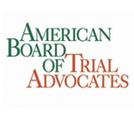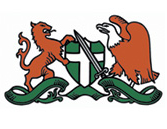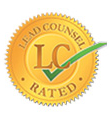Truck accidents are common in California. The rising cases of these accidents cause pain and suffering to many victims and their family members. Understanding all the common injuries will help you explore the available legal options to help you receive compensation. If you have been in a Truck accident in Los Angeles, you can reach out to an attorney at Los Angeles Car Accident Attorney for help.
Common Injuries in a Truck Accident
The common types of injuries you are likely to experience from an accident involving a truck are:
-
Brain Trauma Injuries
Brain injuries are common injuries experienced in a car accident. However, with truck injuries, the damages could be traumatic. Brain trauma injuries result when your head is hit by a major blow or even a jolt in the body. These injuries affect your brain's cells and tissues, resulting in bleeding, which has adverse effects that could lead to death.
The symptoms of traumatic brain injuries could appear after you have been through a traumatic accident or a few days or weeks later. The signs could be either physiological or physiological. Some of the symptoms for traumatic include:
- Convulsions or seizures
- Persistent headaches even after taking painkillers
- Leaking of fluids from the nose or ears or both
- Numbness in your feet and toes
- Dilation of pupils
- Improper coordination
- Constant nausea and vomiting
- Speech problems
- Confusion and disorientation
- Dizziness
- Losing consciousness for extended periods
- Sensitivity to light
- Blurred visions and other sensory problems
- Constant mood changes
- Depression
- Lack of concentration
-
Head injuries
Head injuries are injuries that affect your brain, head, or the skull. They occur when you experience blows to your head or when you are vigorously shaken. The common types of head injuries include concussion, skull fracture, and wounds on the scalp. Head injuries could be either open or closed. Open brain injuries are those that are visible. They happen when something penetrates your head by breaking your skull or the scalp. Closed injuries, on the other hand, don't break your scalp or skull. Some of the head injuries include:
-
Hematoma
A hematoma occurs when blood clots outside the blood vessels. The condition is most serious if it occurs outside your brain because it builds up pressure inside your skull. The results of the pressure buildup lead to brain damage. A major sign of Hematoma is the loss of consciousness for an extended period.
-
Skull Fracture
Skull fractures occur when there is a major blow to your head that is strong enough to break the skull. When you have a skull fracture, it could also mean you have brain injuries.
-
Diffuse Axonal Injury
The diffuse axonal injury occurs in the brain when there has been a significant blow to your head. During the blow, the brains shift rapidly inside the skull, shearing the fibers of your brain. Diffuse axonal injury is dangerous because it is not visible; hence it could lead to permanent brain injuries or death.
-
Concussion
A concussion is a brain injury that occurs after a blow to the head. Concussion affects brain functions.
-
Brain Edema
Edema is a swelling in the body. Brain edema occurs when there is a traumatic injury in the head.
The common symptoms of brain injuries are Headaches, nausea, lightheadedness, persistent, seizure, abnormal eye movements, leaking of fluids from both ears and nose, confusion, a spinning sensation, and mild sensory problems.
-
Back and Spine Injuries
Back, neck and spine injuries are also another common type of injuries you are likely to experience after being hit by a truck. Since trucks are heavy vehicles, the severity of the injuries is expected to be traumatic, considering your sitting position inside your car. Some of the types of back, neck, and spine injuries are:
-
Spinal Cord Injury
Spinal cord injury affects the functioning of the spinal cord. Injuries to the spinal cord could be either temporary or permanent. The most common symptom is the loss of sensation and muscle functions.
-
Muscle Strain
A muscle strain occurs when your muscles tear or when they are overstretched. A major symptom of muscle strain is soreness.
-
Herniated Disc
Discs on the vertebrae of your spine act as shock absorbers. During an injury, the discs protrude outside, tearing the annulus, an outer layer of the discs. Herniated discs are common on the lumbar spine or the cervical, but they can occur in any other part of the spine. Herniated discs occur due to degeneration as you age, but it can also happen when you have been through a traumatic accident. One of the herniated discs' signs is numbness on the areas where the disc has pressed on the spine.
-
Whiplash
Whiplash is an injury that occurs when the neck or spine is strained due to the back and forth rapid movements. Whiplash mostly occurs when you are hit by a vehicle from the rear end of your car. A primary symptom of the whiplash is neck stiffness, pain, and difficulty turning the neck. You could also experience blurred vision, tinnitus, and numbness in the arms.
-
Sprained Spine
A sprained spine occurs when the ligaments holding the bones together tear from their attachments. The symptoms include lower back pain and persistent pain and stiffness on your back.
Neck, Back, and spine injuries almost have the same symptoms: persistent pain running through the whole body. The pain is due to the connection of the body to the nervous system.
-
Broken Bones
If you have been through any accidents, you know that broken bones are a common sign of an injury. The same applies to an accident caused by trucks. Fracture or broken bones can occur in different ways; multiple, crosswise, and lengthwise. Even though your bones are rigid, they can bend or break when an outside force is applied. When the force is extreme, the bones may shutter. A broken bone becomes a dangerous and high risk of infection when the fragments have broken free and are sticking out of the skin. The types of broken fractures include:
-
Stable Fracture
A stable fracture occurs when the bones are broken but not enough to protrude from the skin. The bone fragments are linked together in their original place.
-
Open Fracture
An open fracture, also known as a compound fracture, occurs when the bone fragments puncture the skin and are seen outside the body.
-
Transverse Fracture
When a force is strong enough and applied perpendicularly to the bone, it results in the transverse fracture.
-
Oblique Fracture
When force is applied on the bone at an angle, an oblique fracture is not the bone's right angle—the breakage results in a slanted bone fracture.
-
Comminuted Fracture
A comminuted fracture occurs when the bones break into several pieces. Comminuted fractures are caused by a high-velocity incident such as being hit by a truck.
Unless you have an open fracture, you may not easily know whether you have a broken bone. Some of the signs of a broken bone include swelling, bruising, and deformity.
-
Amputation
Amputation occurs when one or some parts of your limbs are decapitated and detached from your body. Amputation can occur during the accident or after the accident as a part of a treatment option. Amputation occurs when a sharp metal from the truck or your car cuts through your limb or crushes it to the point that the nerves are destroyed. It is a severe injury that changes your life forever. It could also have adverse effects on your self-esteem.
-
Internal Bleeding
Internal injuries are a serious injury resulting from trauma. They occur when you have been through an accident, and you have taken a while before receiving medical help. The types of trauma that could lead to internal bleeding include Blunt trauma and penetrating trauma. Blunt trauma occurs when the parts of your body collide with an object. The commotion inside your body causes tears on your blood vessels resulting in internal bleeding. Penetrating bleeding occurs when an object enters the body from outside damaging or tearing the blood vessels.
Some of the sources of internal bleeding include:
- Internal bleeding from a head injury
- Bleeding that occurs around the heart
- Large blood vessels tearing and bleeding from the central point of the body
- Damage of the blood vessels in the abdomen
Symptoms of Internal Bleeding
Some of the common signs and symptoms of internal bleeding are:
- If the accident damaged your spleen, you could expect to experience abdominal pain or swelling
- Light-headedness and dizziness, and fainting from time to time
- If you were hit on the leg, particularly the thigh region, you will experience either swelling or tightness and pain
- Headaches and seizures due to bleeding in the brain
- Constantly losing balance
- Tingling on your hands or feet
- Blood in your urine
- Joint pain and swelling
-
Inhalation Injuries
You could also experience inhalation injuries when you have been involved in a truck accident. Inhaling hot air could have severe consequences for your health. Some of the inhalation injuries include:
Signs and symptoms of smoke inhalation injuries
-
Coughing
When your mucus membranes become irritated due to smoke inhalation, they secrete more mucus leading to consistent coughing. The color of the secreted mucus may vary in color depending on the amount of burned substances in your lungs.
-
Shortness of Breath
You will experience shortness of breath if there is an injury in your respiratory system, which decreases your blood's oxygen levels. Also, your blood won't be able to transport oxygen through the body.
-
Headache
Headaches are common symptoms of smoke inhalation because of the amount of carbon monoxide you have been exposed to. You may also experience nausea because of the carbon monoxide.
-
Skin Changes
Your skin may turn pale or blue due to carbon monoxide exposure and the lack of enough oxygen in your body. You may also have slight burns on your body.
-
Eye Damage
You may also have one or both eyes irritated until they turn red due to the smoke.
-
Noisy Breathing
If you inhaled dangerous chemicals, they may irritate your vocal cords and possibly damage them, resulting in a hoarse voice and noisy breathing.
-
Chest Pains
Chest pains are caused by low oxygen levels or irritation in your respiratory organs. You can also experience chest pains when you cough excessively.
-
Soot Inside Your Throat
It is not uncommon to notice soot inside the nostrils after inhaling a large volume of carbon monoxide.
-
Decreased Alertness
Inhalation of poisonous gases can cause asphyxiation, which may result in reduced alertness.
-
Burn Injuries
Burn injuries are not common like the other types of injuries, but they can occur even in a minor accident. As the largest organ of the body, the skin has various functions that protect the body's inner parts. The types of burns injuries are:
-
First-degree Burns
First-degree burns are minor burns that heal on their own. The burn affects the upper part of the skin resulting in soreness or redness.
-
Second-degree Burns
Second-degree burns are much more severe than first degree burns. The burns affect the upper skin and the dermis resulting in blisters, pain, and swelling. When you experience second-degree burns, your skin will appear to have white or red patches.
-
Third-degree Burns
A third-degree burn is another type of burn you can probably experience in a truck accident. Third-degree burns are serious because they affect the innermost parts of the skin. As a victim, your skin will be charred or appear blackened.
-
Fourth-degree Burns
Fourth-degree burns are dangerous because they go deep enough, affecting the body organs and the bones.
You will likely be admitted for specialized care in a burn center if the burns have affected most parts of your body. As part of the treatment, you will need a skin graft for the areas that have been damaged.
Burn Injuries Complications
Burn injuries are serious injuries that could lead to either permanent damage or death if not attended early on. Some of the complications of burn injuries are:
- The injuries are susceptible to bacterial infection, which could lead to sepsis. Sepsis is a life-threatening complication that affects the bloodstream.
- You are likely to experience mild respiratory complications within five days after inhaling smoke from the accident.
- Dehydration due to acute fluid loss.
- You may also go through amputation, especially if the burns completely affected part of your limbs.
- You will have to deal with permanent scars.
Emotional Complications
Besides the pain that comes with burn injuries, you may also have to deal with emotional effects. Even after you have healed, you may still have to deal with emotional pain and anguish. You may experience these feelings immediately after the accident or during your healing journey. Some of the emotions you may experience are:
- Anxiety.
- Fear of driving or being driven, especially near the scene of the accident.
- Low self-esteem because of the impact of the burns on your looks.
-
Torso and Rib Injuries
Your upper body and internal organs are supported and protected by the rib cages. When you experience bruising and broken ribs, you may feel mild pain in your chest. However, if you have been through severe trauma, you could experience life-threatening complications such as perforated lungs. If you have been through an accident, your ribs must be examined, especially if you have the following signs:
- Pain at the point of impact
- Crunching when you touch the area where you were hit.
- Pain when coughing, sneezing, or laughing.
- Change of ribcage appearance.
- Breathing problems.
When you have rib injuries, you are also likely to have soft tissue injuries. Some of the soft tissue injuries include:
- The costochondral separation which occurs when your rib loosens from the breastbone cartilage
- Bruising of the blood vessels, which results in leakage of blood to the tissues
- Intercostal strains on the intercostal muscles which facilitate the movement of the ribcage
Risk of Serious Rib Injuries
Broken ribs occur when all of your 24 ribs are broken in a severe accident. However, you are likely to experience rib fractures than complete breakage of all your ribs. But whether you experience complete breakage or rib fractures, you can expect to face some of the following risks:
-
Splenic Rupture
Your spleen has some of the essential functions in the body. When you have been through a trauma in your ribs, the spleen can rupture, leading to leakage of blood to the abdomen's cavity.
-
Pneumothorax
A serious broken rib could puncture the chest wall, leading to a collapsed lung, which changes your chest’s air pressure.
-
Cardiac Injuries
A severe injury on your ribs could lead to complications in the vessels supplying blood to your heart.
Types of compensation in a Truck Accident
Being hit by a truck can leave you with serious injuries, which is why you need compensation. Even though compensation cannot restore you to your previous life, it will help relieve some burden. Compensation has two categories: compensatory and punitive damages. Punitive damages are meant to punish the defendant and warn them of repeating the same mistakes. The damages are awarded by court after a criminal trial finds the defendant guilty of hitting you with the truck. On the other hand, compensatory damages are awarded in a civil court in monetary form.
Here are some of the compensation you should expect to receive from a truck accident.
-
Medical Expenses
Injuries from a truck accident can be pretty serious, which means you will require lots of medical assistance. Both your current and future medical bills can go up to hundreds of thousands, which can take a toll on you. Some serious injuries could also leave you with long term injuries which need constant treatment. For this reason, your medical bill should be paid for by the fault party in the form of a settlement.
-
Lost Wages
Injuries from a truck accident could leave you in hospital for a while, which means you won’t be able to go to work or even make money. Also, the recovery period could take a while. For this reason, you need compensation for both current and future wages.
-
Pain and Suffering
An accident can be devastating for both you and your family. Receiving compensation may not restore you to your previous life, but it will help with the transition.
-
Property Damage
If the truck accident destroyed some of your property, you need compensation for that too.
The defendant in a Truck Accident
Before filing a lawsuit, you need to determine who to sue for the injuries you suffered and ultimately receive compensation. Determining a defendant in a truck accident can be quite challenging, which is why you need a personal injury attorney. An attorney will help investigate the accident, then determine the defendant. One of the defendants in a truck accident is the truck driver.
How Can a Truck Accident Help You?
Besides a lifetime of emotional anguish and scars, you may also deal with financial strains either due to loss of earning ability or medical bills, which is why you should reach out to a personal injury attorney to help you receive compensation for your suffering. An attorney will go through the facts of your case and determine the next way forward.
Investigation of the accident will help your attorney know the faulty party to file a lawsuit against them. Your attorney will calculate the losses you have endured then demand compensation from the trucking company or its insurance company. In case the faulty party refuses to compensate you, the attorney will file a lawsuit and have the court demand compensation from them.
Find a Los Angeles Truck Accident Attorney Near Me
Injuries from a truck accident can be pretty serious compared to an accident involving smaller vehicles. These injuries could leave you with permanent scars or disability or even lead to loss of life. If you or anyone you know has suffered some common truck accident injuries, don't hesitate to ask for help. You can reach out to an attorney at the Los Angeles Car Accident Attorney Law Firm. Our attorneys are experienced at handling all the cases dealing with common injuries in a truck accident. You can reach us at 424-237-3600 if you have any questions.






